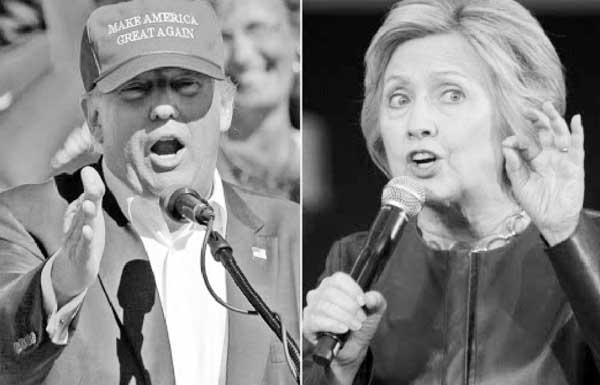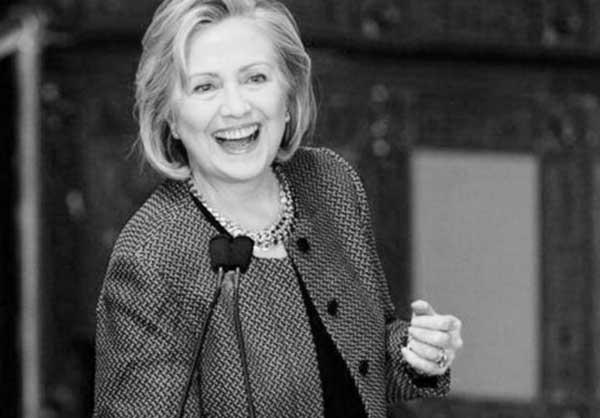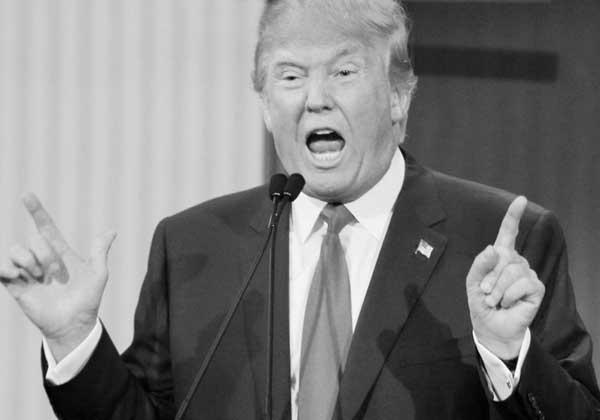How China views the US elections
2016-11-15
In fact, Chinas views of the on- going election race in US may strike many Americans as familiar: Presumptive Democratic nominee Hillary Clinton is regularly regarded as “the devil we know,” while Donald Trump is an unknown entity whos seen as having a worrying level of volatility.
“At the end of the day, I think (Chinese leaders) are uncertain about what U.S.-China relations will be under either of the presumptive candidates: What theyve heard to date is mostly oriented around the needs of the campaign,”said Kenneth Lieberthal, a China poli- tics expert and senior fellow emeritus at policy think tank Brookings.
Beijing has learned over the years to expect U.S. candidates to make antiChina postures while theyre campaigning, so Chinese leaders have learned to reserve judgement until a new president has settled into office, experts said.
“I go around Asia, and the region is riveted: Everybody is riveted on who the hell is going to be our next president ... but the Chinese I dont think are quite as obsessed with this,” said Bonnie Glaser, senior adviser for Asia and director of the China Power Project at the Center for Strategic and International Studies. “Theyre more obsessed with themselves and the problems that they face.”
Still, Chinese assessments of Trump are colorful and varied: He is described as an “irrational type,” whose mouth is too small and who employs a “childish style of speaking,” Hes seen as a candidate who would “bring changes to the Sino-U.S. relationship,” but who embodies “pragmatism” despite his “dubious record of success as a businessman.”
Some Chinese officials look at Clinton — a former member of President Barack Obamas Cabinet — as the candidate who would bring continuity to U.S.-Sino relations, but that contention ignores differences between her and the former boss. Not only is Clinton generally considered more hawkish than Obama on issues of projecting American strength abroad, but she has demonstrated a pattern of criticizing China on human rights issues. That history extends all the way from a 1995 speech that stirred controversy in Beijing, up to a 2015 tweet about the countrys persecution of feminists.
U.N. Summit Meeting on Womens Rights Highlights More Tension Between U.S. and China
President Xi Jinping of China is a co-host of the meeting, even though his country imprisoned five feminists this year, and President Obama will not attend.
Still, Chinese leadership views Clinton as a fundamentally consistent politician, meaning that even if her actions run counter to Chinas interests, at least they can be anticipated.
“She is predictable, they generally know how she approaches China: There are aspects they dont like about her, but they generally know what to expect,”Glaser said.
That outlook was echoed by Tsinghua University senior adviser Harvey Dzodin, who suggested in China Daily that China may view the election as “between the devil and the deep blue sea.”
“They dont like (Trumps) proclamations about what he would do in terms of tariffs on Chinese goods, and that hed go after China on economic and trade issues. But having said that, I dont think there are many who think he can follow through on what hes talking about, or even if he knows what hes talking about.”-Kenneth Lieberthal, senior fellow emeritus, Brookings. For his part, Trump has struck a bellicose tone against Asias largest economy, accusing China of harming the U.S. through unfair trade and currency practices.
“We cant continue to allow China to rape our country — and thats what theyre doing — its the greatest theft in the history of the world,” Trump said in May.
Trump has vowed to take the fight to China by levying high tariffs on its goods, but many in Beijing arent certain hed be a bad thing for their country.”Donald Trump is a puzzlement” to Chinese officials, Lieberthal said. “They dont like his proclamations about what he would do in terms of tariffs on Chinese goods, and that hed go after China on economic and trade issues. But having said that, I dont think there are many who think he can follow through on what hes talking about, or even if he knows what hes talking about.”
While Chinese leaders may have a general sense of Clintons worldview and whose advice she takes, theyre largely in the dark about Trumps personal preferences, Lieberthal explained.
And Trump has his fans in China: Its well-publicized that Chinese internet groups spring up during the primary season, including “Donald Trump Super Fans Club” and “God Emperor Trump.” One such account on microblogging site Weibo, the name of which translated to “Trump Global Fans Club,” alternates between extolling his foreign policy and praising the physical attributes of his daughter.
But some of that online admiration was likely at least partially ironic. “Chinese regard Trump as a clown, funny and unscrupulous,” Wang Yiwei, director of the Institute of International Affairs at Renmin University of China, wrote in a brief op-ed in the Communist Party-controlled Global Times.
Still, theres a population within China that is actively rooting for Trump because they think hell best serve their countrys interests, according to Glaser, who cited four aspects of the candidates history and rhetoric that lead them to that conclusion.
Trump has criticized U.S. alliances with Japan and Korea, suggesting that those countries should be paying for their own defense. If either of those cooperative arrangements is weakened, the argument goes, China may be able to greater assert itself in the regions geopolitics — not to mention the benefits of its local rivals suddenly forced to spend more on defense.
Under Obama, the U.S. has spent more time and money exerting influence in Asia, and many in China have come to see that focus as a threat to their own rising power. In contrast, Trump focuses his rhetoric on the Islamic State and terrorism, leading some in Beijing to conclude he may scale back Obamas pivot to Asia so he can divert assets to the Middle East.
Some in China believe that Trump, who made his name as a businessman before branching out into reality television and politics, would approach foreign policy in a “transactional” manner, according to Glaser. That idea appeals to many in China, she said, because it means everything is up for negotiation— there are no ideological red lines.
Finally, most Chinese expect Clinton to regularly bring up human rights concerns with China, but they “think theyd get a pass” on those issues under Trump. “Who has heard Donald Trump say anything about human rights?” Glaser asked.
A poll in May found that more than 60 percent of mainland and overseas Chinese say they support Trump, while only about 8 percent voiced their preference for Clinton.
Chinese citizens seem to “prefer Trump to Clinton. This is understandable as the latter has criticized China a number of times over the cyber security, human rights and so forth,” Jia Qingguo, dean of the School of International Studies at Peking University, wrote in the Global Times. “Trump, on the other hand, is a mystery to Chinese. Although he has expressed dissatisfaction with the current U.S.-China policies, he looks forward to strengthening ties with China as well.”
“That Trumps outspoken ways have endeared him to many in the U.S. is, to a large extent, a result of public disappointment with U.S.-style democracy. An increasing number of U.S. citizens are realizing that behind the democracy rhetoric is mainly a glib mouth.”
-Yin Jiwu, associate professor, writing in China Daily newspaper
Yet Trumps success thus far has proven to be a propaganda boon for Beijing, as multiple news stories and editorials point to his ascent as proof that democracy is a flawed system of governance.
One such editorial, published in the party-controlled Global Times, claimed that Trump had opened “Pandoras box” in U.S. society with his “abusively racist and extremist” rhetoric.
“Big-mouthed, anti-traditional, abusively forthright, he is a perfect populist that could easily provoke the public. Despite candidates promises, Americans know elections cannot really change their lives. Then, why not support Trump and vent their spleen?” the editorial said, warning that “the rise of a racist in the U.S. political arena worries the whole world.”
Many observers, both inside and outside the country, have observed that Trumps candidacy could affect longterm popular perceptions of democracy.
“That Trumps outspoken ways have endeared him to many in the U.S. is, to a large extent, a result of public disappointment with U.S.-style democracy,” Yin Jiwu, an associate professor at Beijing Foreign Studies University wrote for China Daily. “An increasing number of U.S. citizens are realizing that behind the democracy rhetoric is mainly a glib mouth.”
杂志排行
中国经贸聚焦·英文版的其它文章
- Latest Public Official Changes in China
- Exhibitions
- Wang Menghui Party secretary of Xiamen City moved to Shenyang City and served as Municipal Party committee secretary
- Zhengyuzhuo Deputy director of the Liaoning Provincial People’s Congress was re moved from both his official and party duties
- Chen Quanguo Served as the party secretary of Xinjiang Province
- Li Xiaopeng Left his duty as the Governor of Shanxi due to transfer
